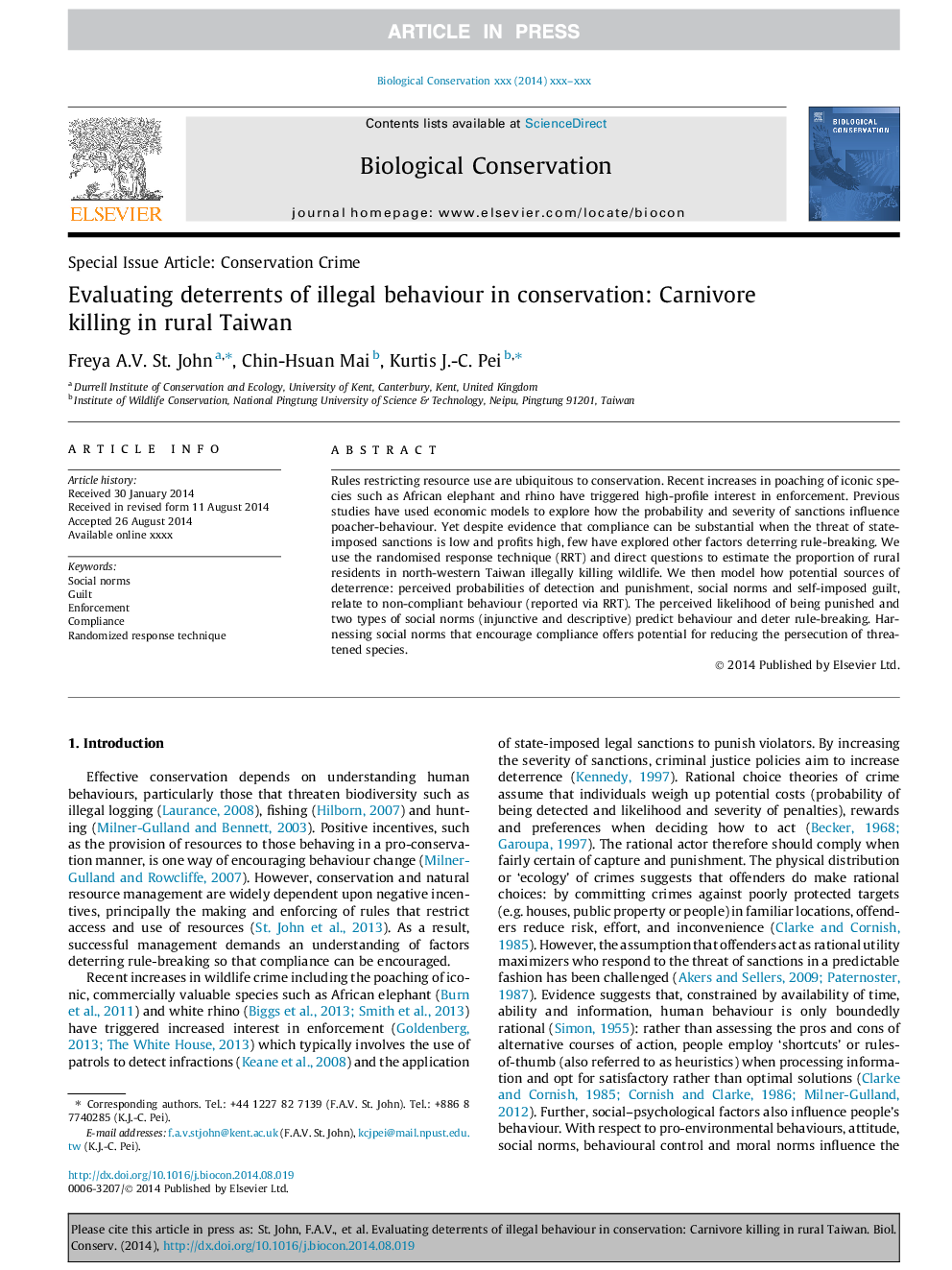| Article ID | Journal | Published Year | Pages | File Type |
|---|---|---|---|---|
| 6299169 | Biological Conservation | 2015 | 9 Pages |
Abstract
Rules restricting resource use are ubiquitous to conservation. Recent increases in poaching of iconic species such as African elephant and rhino have triggered high-profile interest in enforcement. Previous studies have used economic models to explore how the probability and severity of sanctions influence poacher-behaviour. Yet despite evidence that compliance can be substantial when the threat of state-imposed sanctions is low and profits high, few have explored other factors deterring rule-breaking. We use the randomised response technique (RRT) and direct questions to estimate the proportion of rural residents in north-western Taiwan illegally killing wildlife. We then model how potential sources of deterrence: perceived probabilities of detection and punishment, social norms and self-imposed guilt, relate to non-compliant behaviour (reported via RRT). The perceived likelihood of being punished and two types of social norms (injunctive and descriptive) predict behaviour and deter rule-breaking. Harnessing social norms that encourage compliance offers potential for reducing the persecution of threatened species.
Related Topics
Life Sciences
Agricultural and Biological Sciences
Ecology, Evolution, Behavior and Systematics
Authors
Freya A.V. ST. John, Chin-Hsuan Mai, Kurtis J.-C. Pei,
